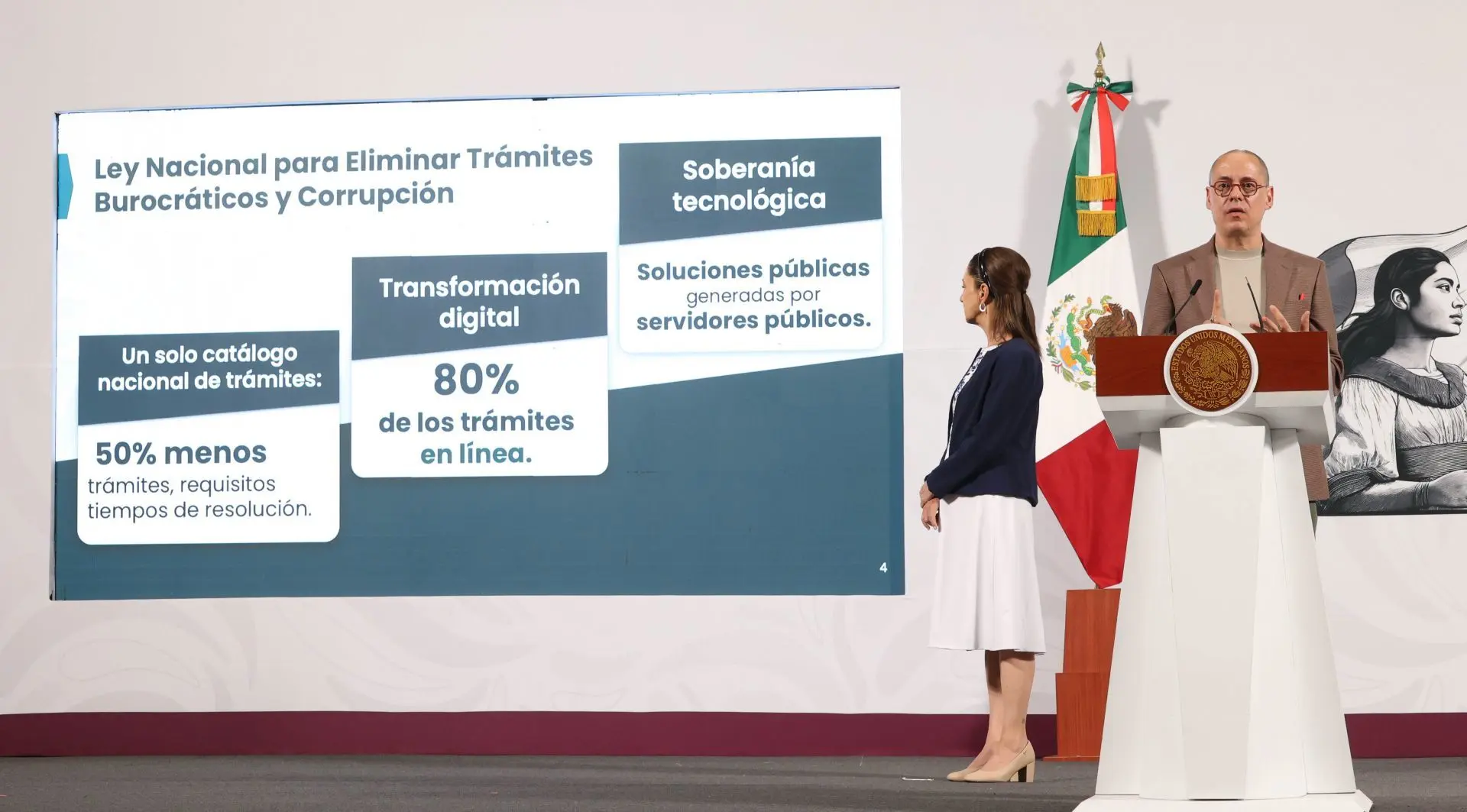
*The goal of the law, presented by José Merino, head of the Digital Transformation Agency, is to reduce paperwork, requirements, and response times by 50%.
By Canal 11/Mexican Press Agency.
José Merino, head of the Digital Transformation Agency, presented the National Law to Eliminate Bureaucratic Paperwork and Corruption. The legislation seeks to reduce paperwork, requirements, and response times by 50 percent.
During President Claudia Sheinbaum’s morning press conference, the federal official explained that the law consists of six chapters:
• Authorities responsible for simplification and digitalization
• National model to eliminate bureaucratic paperwork procedures
• National model to digitalize paperwork procedures
• National model for standardizing paperwork procedures
• National model for citizen service
• Development of public technological capabilities
National Model for Simplification and Digitalization
Explaining the structure of the National Model for Simplification and Digitalization, Merino highlighted the following components:
• A single authority for simplification and digitalization
• Principles of simplification
• Unified catalog of paperwork procedures
• National Citizen Service System
• “Llave MX” and Digital File
• Development of internal capabilities
He noted that this will help documents circulate digitally so that people will not have to go “from window to window” in government offices to comply with bureaucratic requirements.
“We need to merge paperwork procedures, not digitalize something that hasn’t first been simplified. It’s not very helpful to move a cumbersome process online… And very importantly, a key part of this project is Llave MX, a digital identity that allows people to carry out paperwork procedures remotely,” he clarified.
The head of the Digital Transformation Agency reiterated that the goal is to cut paperwork, requirements, and response time by 50 percent. In addition, the aim is to consolidate just 300 state-level paperwork procedures and 100 municipal government procedures.
“At least 80 percent of available paperwork should be completed online, and we aim for technological sovereignty—meaning tech solutions should be developed by public servants,” he added.
National Center for Public Technology
The National Law to Eliminate Bureaucratic Paperwork Procedures and Corruption will create the National Center for Public Technology, whose goal is to provide technical and regulatory support.
The head of the Digital Transformation Agency explained that the center will include a Public Code Repository, so that:
“Any development made by one authority can be shared with others, accompanied by the necessary regulations for implementation.”
“There’s also the School of Technology for Public Servants; we’re already on the fourth generation, with 1,300 public servants from 20 states and more than 50 authorities. This ensures that governments lacking tech departments still have trained staff to maintain the systems that will be implemented,” he explained.
Mexican Press Agency is part of ALMA, which is dedicated to news and information about Mexico and Mexicans in the United States and is a fiscally sponsored project of Social Focus, a 501(c)(3) nonprofit organization based in Redwood City, California.